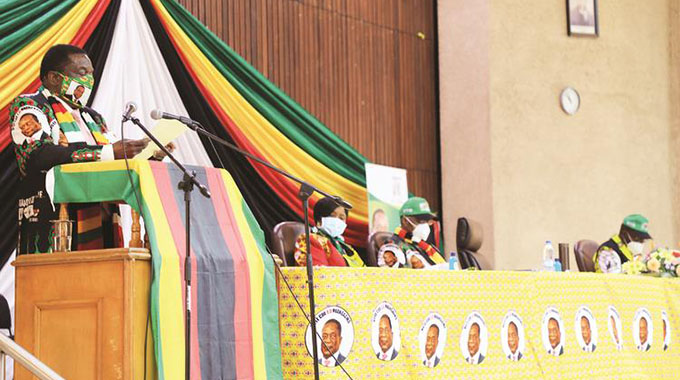Covid-19: Which way for Zimbabwe?

Dr Admore Jokwiro
Correspondent
A few weeks ago my colleagues Drs Lenon Gwaunza, Leolin Katsidzira and Prof James Hakim published an instructive article on Covid-19 in Zimbabwe titled “The SARS-CoV-2 epidemic in Zimbabwe: Quo Vadis?
In the past week cases in Zimbabwe have soared to 279 (most of the cases being recorded amongst returnees from South Africa where the pandemic has accelerated with cases topping 40000 in the same week).
In a bid to contain the scourge we saw authorities intensify lockdown restrictions with a lot of people being turned away from the city centre in Harare, we also saw a number of arrests for, people breaching guidelines on the use of face masks and so forth.
This sparked a lot of debate on social media given that the lockdown is indefinite, and the threat of hunger is rising by the day the more businesses remain closed in the informal sector.
In this same past week, we witnessed another public debate around schools reopening and examinations scheduling. We also heard of cases of people escaping quarantine facilities and also some using illegal entry points back into Zimbabwe.
I had an interesting conversation cum debate with a colleague based in Bulawayo on some of these issues especially around the necessity of intensifying lockdowns in Africa but before I share some of the discussions let me state in my opinion some important issues around Covid-19 in Zimbabwe.
- At least 72 percent of Covid-19 cases reported in Zimbabwe are from returnees coming from South Africa. Cases in South Africa topped 40000 in the past week. It is important to interpret this in light of the fact that there are millions of Zimbabweans residing in South Africa who have lost jobs as a result of this epidemic and will no doubt be heading home as they will not be able to maintain their bills and other living expenses. Even the local cases( that is Zimbabweans who have had Covid-19 without travelling out of the country) are contacts of these travellers.
- We do not have as yet established community transmission but once that begins to happen we will have a steep acceleration that can overwhelm our health centres.
- We cannot keep out citizens from returning home to Zimbabwe.Covid-19 has shaken the whole world and economies are depressed. It is their right to return to their motherland.
- According to google mobility data as at May 29, 2020 mobility in workplaces and residential areas has returned to almost baseline levels( 14 February,2020) and this is worrying as mobility is a proxy for social distancing and lockdown effectiveness.If we begin to have community spread whilst we have high mobility then the epidemic will be difficult to contain
Back to the Future
So, what awaits us as a nation in the days coming ahead? Are the cases going to increase? Can our system handle more cases? Is our healthcare workforce ready and adequate? Do we have enough resources? So which way does Zimbabwe go from here? Whilst it may be difficult to decisively answer all these questions I think it is important that the road that we take as a country be informed by situational awareness that is our context and environment and lessons drawn from these.
Covid-19 is a highly contagious disease and even though it is not as highly lethal as initially thought the number of deaths is a function of the number of cases. With more cases the vulnerable populations are going to be affected and therefore if we are to have more cases in Zimbabwe, we will have unnecessary loss of lives and therefore prevention is best.
And to achieve this we should maintain or strengthen the following:
- Locals must be completely insulated from returning residents by ensuring quarantine guidelines are followed. This is a key intervention. Conditions in quarantine facilities must meet standard requirements to ensure safety and comfort.
- Mobility must be minimized to the maximum possible. This is a responsibility for every Zimbabwean to know that in doing this we are protecting one another
- Our hospitals and healthcare workers must be prepared for the worst-case scenario – there is no harm in preparing for the worst. If it happens, we would be ready if it does not, we do not lose anything
- Our hospitals must remain functional for non Covid-19 illnesses such as malaria, TB and surgery so that we do not lose lives to other conditions.
- The government must be able to continue social protection for the vulnerable given that Covid-19 has already impacted on the livelihoods of people negatively
- Protective measures such as handwashing, face masks and social distancing must continue- schools, universities and other institutions must only be allowed to reopen after careful evaluations.
- Guidelines for re-opening must be crafted and shared and continually improved along with emerging evidence.
We have come a long way ever since our first case on March 20, but we could still be in for a long haul and as we reflect on the journey ahead it is important to acknowledge the good that we have done as a country.
All players, the government, partners, the business community, citizens and our resilient health workers who are in fact heroes of this fight against Covid-19 must be applauded.
And in that applause the reality is that we could be headed for a longer fight and we need to remain steadfast and act more. Let’s all wear a face mask.
- Dr Jokwiro is the District Medical Officer for Nyanga and a Hubert Humphrey Fellow. He writes this article in his individual capacity and opinions expressed here are his own and based on data from open data sources, he can be contacted on [email protected]








Comments